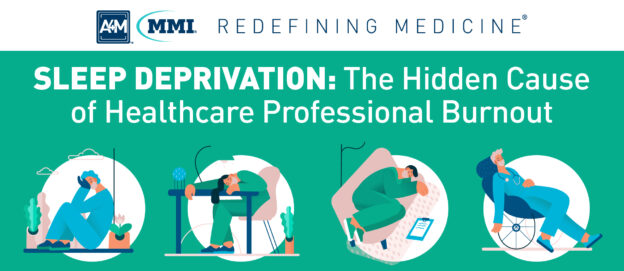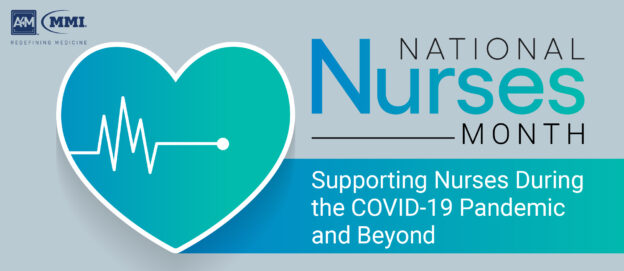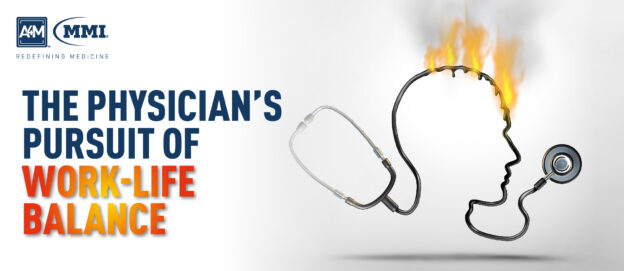Current burnout rates and physician dissatisfaction levels are nearing an all-time high; with the ever-increasing demands of a pandemic-torn healthcare system, a work-life balance is not easy to achieve within this profession. Per recent research, physicians work an average of 51.4 hours a week while nearly a quarter works between 61 and 80 hours a week, making it increasingly difficult for them to balance their personal needs with their work schedule. At the same time, 92% of surveyed physicians aged 35 or younger reported work-life balance to be an important aspect while female physicians in particular report work-life balance as a significant concern.
The “life” component can encompass wellness needs, social interactions, family life, and other pursuits as well as daily living activities. However, due to an increase in mobile technology and services that keep physicians connected to their practice, work-related tasks have begun to extend more into aspects of their personal lives and moments of free time. As the line between work and life continues to blur, healthcare professionals face a growing risk of increased burnout and other adverse physical and psychological outcomes.
The Pursuit of Work-Life Balance
According to Dr. Arun Saini, assistant professor in the Division of Critical Care Medicine at the University of Tennessee, dissatisfaction, depression, and burnout are some of the most common reasons physicians seek a better work-life balance.
“Most millennial physicians are paying more importance to work-life balance after seeing the firsthand effect of burnout in their colleagues and among their family members. There is also a shift in the family dynamics of [the] millennial, as most families have both parents working and limited support from immediate family members. This has put additional pressure on their abilities to manage work-life balance,” Dr. Saini told Medical News Today.
Without adequate rest and recuperation from the demands of the workplace clinicians can experience burnout, which also negatively affects their clinical performance and the health outcomes of their patients.
A Counter Approach
However, other experts disagree by arguing that the pursuit of a work-life balance can actually worsen a physician’s quality of life. According to Dr. Andreas Schwingschackl, assistant pediatrics professor at the University of California, Los Angeles, the separation of work and life indicates conflict – that work is inherently “bad” and life is “good.” Instead of seeking a clear-cut distinction between a career and personal life, he recommends a different approach.
“Once I was able to integrate rather than separate all my daily activities [and] harmonize rather than divide my time, not only between work and life but also between clinical care and research, the pursuit of balance shifted from work-life to life-nature-universe. The result was an overwhelming daily feeling of ‘balance,’” he told Medical News Today.
Tips for Achieving Work-Life Balance
Several factors can be optimized to help physicians achieve a sense of balance between their work and personal lives.
Define Purpose
One important element needed to support balance is having a sense of purpose. Over time, physicians may lose passion for or satisfaction with their line of work making it especially important for them to incorporate more tasks that align with their initial motivation for pursuing medicine. This can include scheduling procedures they enjoy, working on patient cases they find interesting, and dedicating time to explore their passions in the field. “Finding meaning in your work should also take into account family needs and aligning your own needs with those of your organization,” experts highlight.
Manage Time With Intention
Balancing work and life requires effective time management, which includes setting both long- and short-term goals, planning and organizing, and using time productively. Some strategies to manage time more efficiently can include preparing electronic health record templates, making checklists, outsourcing housework, and meal-prepping for the week ahead. Minimizing time wasted with effective scheduling and time management can allow healthcare professionals to maximize their free time to spend on personal priorities, family activities, and social interactions.
Prioritize What Matters
Another important technique for improving work-life balance is the identification of what is most important among your responsibilities and managing your time to prioritize it. For instance, if family life is your priority, you can adjust your schedule so that you maximize days with your family members and work a reduced number of hours. Evidence supports working fewer hours which is associated with a reduced risk of burnout; data from a Medscape report reveals that only 36% of those working between 31 and 40 hours a week reported burnout symptoms compared with 57% of those working over 71 hours.
Set Boundaries
Due to the shift to telemedicine and increase in the use of mobile technologies, the clinic is no longer the only place one can reach physicians. As a result, the line between work and life is becoming even more blurred leading to the development of an “integrated lifestyle” in which both components are expected to exist simultaneously. However, this is rarely conducive to the separation of work matters from physicians’ personal lives making boundary setting especially pertinent. For example, physicians can designate working hours on their personal devices during which they can receive calls, emails, and other notifications; outside of these set times, they can mute work-related notifications or turn off their devices entirely.
As there is currently no set standard for an appropriate work-life balance equation, what constitutes this at times elusive concept depends entirely on personal needs, preferences, and priorities. Although, there are several methods for achieving a more harmonious balance between professional and personal lives.
With the COVID-19 pandemic continuing to take a huge toll on healthcare professionals, it is especially important for physicians to carve out time for rest and personal needs so as to avoid the possibility of burnout – a condition that not only has detrimental effects on their wellbeing, but also on that of their patients. Clinicians who feel overwhelmed can reach out to the national Physician Support Line which provides free and confidential support services.



